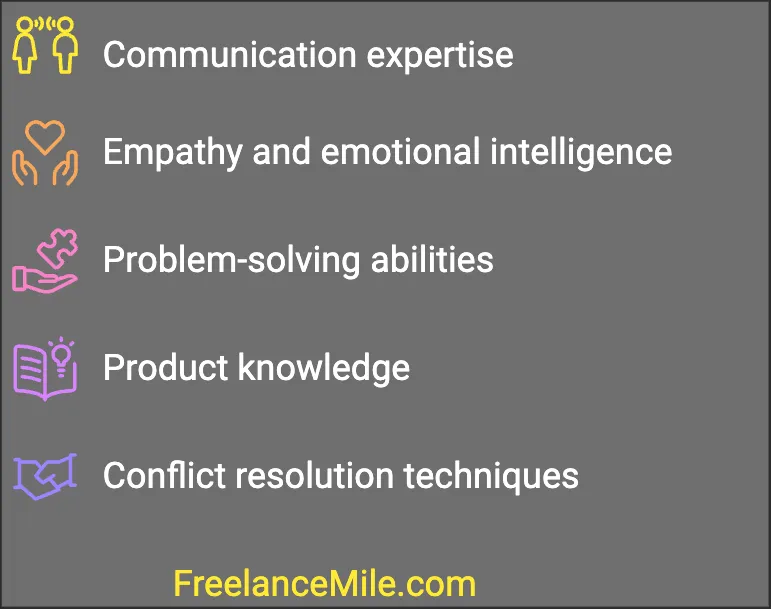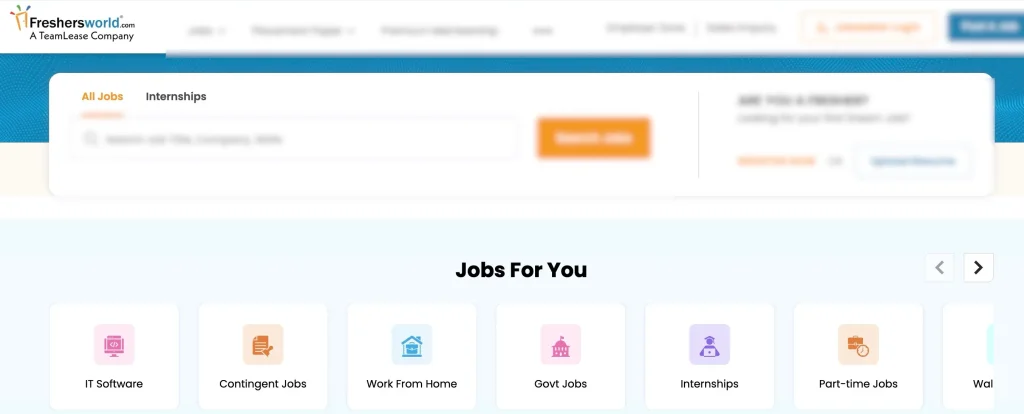Entry level jobs with no experience are readily available across various industries, with technology, healthcare, and administrative sectors offering the most promising opportunities. These positions typically offer starting salaries ranging from $27,300 to $80,050 annually, depending on the role and industry.
Key Takeaways
- Tech sector offers the highest-paying entry-level positions, with technical writers earning up to $80,050 and IT support specialists starting at $60,000.
- Traditional roles like administrative assistants and healthcare positions provide stable career paths with comprehensive training.
- Multiple industries welcome newcomers, including IT, healthcare, customer service, and call centers.
- Career advancement is supported through professional certifications, skill development programs, and clear promotion tracks.
- Starting salaries vary significantly by industry, with tech positions offering premium compensation packages.
High-Paying Tech Opportunities

The tech industry offers numerous well-paying entry-level opportunities across various specializations.
Entry-Level Tech Positions
Junior Technical Writer
Technical writers start with a median annual salary of $80,050, with strong job prospects and a projected 4% growth rate through 2033.
Entry-Level Technical Project Manager
Starting project managers can expect salaries between $65,000 to $91,000, with potential to reach $114,000+ as they gain experience.
IT Support Specialist
Entry-level IT support specialists earn around $60,000 annually, with potential to increase to $68,000 with 4-6 years of experience.
Data Entry Specialist
Data entry professionals typically earn between $27,300 to $42,073 annually, with opportunities for advancement to supervisory roles.
Brand Designer
Entry-level brand designers earn an average of $60,000 annually, with potential to earn over $100,000 with experience and proven success.
Digital Strategist
Starting digital strategists earn approximately $61,394 annually, with salaries increasing to $90,461+ after 10-14 years of experience.
Motion Designer
Motion designers begin at around $62,000 annually, with higher salaries in major tech hubs:
- San Francisco: $85,000
- Los Angeles: $64,000
- New York City: $64,000
These positions offer strong growth potential and often include added benefits such as healthcare coverage, retirement plans, and professional development opportunities.
Traditional Entry-Level Opportunities
Traditional entry-level positions offer various career paths across different sectors. Here’s a detailed look at key administrative and healthcare roles:
Administrative Roles
Administrative Assistant
Administrative assistants earn an average of ₹312,241 annually, with experienced professionals earning up to ₹458,000. Key responsibilities include:
- Managing correspondence and scheduling
- Organizing meetings and maintaining databases
- Coordinating events and travel arrangements
Junior Legal Clerk
Legal clerks assist lawyers and judges with administrative tasks. Their duties include:
- Preparing legal documents
- Conducting legal research
- Attending court sessions
- Managing case documentation
Office Support Staff
Office support roles typically earn around $43,600 annually. Core responsibilities include:
- Document management
- Administrative support
- Schedule management
- Customer service
Healthcare Sector
Clerical Positions
Health clerks work in medical settings, earning a median annual salary of $46,660.
They handle:
- Patient records management
- Appointment scheduling
- Communication between staff and patients
- Supply ordering and inventory management
Caregiving Jobs
Caregivers earn between $9.45 to $11.19 per hour, with responsibilities including:
- Personal care assistance
- Medication management
- Meal preparation
- Transportation assistance
Activities Assistant
Activities assistants work in healthcare facilities, focusing on:
- Planning and organizing activities
- Leading group programs
- Documenting resident participation
- Providing individual support
Dietary Aide
Dietary aides work under dietary managers, handling:
- Meal preparation
- Food delivery
- Kitchen sanitation
- Inventory management
Getting Started Without Experience
Starting a career without experience requires strategic planning and focusing on industries that welcome newcomers.
Building Your Foundation
Focus on Entry-Level Job Searches
Entry-level positions provide excellent starting points for career development. Many employers hire inexperienced employees who demonstrate eagerness to learn and strong potential. Focus on roles that align with your basic skills and offer training opportunities4.
Register with Temp Agencies
Temporary staffing agencies help bridge the gap between no experience and full-time employment. They often handle everything from onboarding to payroll, making it easier to gain initial work experience.
Build Relevant Technical Skills
Take advantage of free resources to develop technical competencies:
- LinkedIn Learning offers courses in Excel, Python, and public speaking
- Coursera provides university-level courses in data science and business
- Codecademy offers programming and web development training
Create a Strong Portfolio
Focus on building a portfolio through:
- Freelance projects
- Volunteer work
- Internships
- Part-time positions
Key Industries to Consider
Information Technology
The tech sector offers numerous entry-level opportunities:
- Junior technical writers: $80,050 median annual salary
- IT support specialists: $60,000 starting salary
- Data entry specialists: $27,300-$42,073 annually
Healthcare
Healthcare services provide stable entry points through:
- Clerical positions
- Activities assistant roles
- Dietary aide positions
Customer Service
Customer service positions rarely require previous experience and provide excellent training grounds for developing professional skills.
Shipping and Receiving
These positions typically require minimal previous experience, focusing instead on reliability and attention to detail.
Call Centers
Call center positions offer comprehensive training programs and opportunities for advancement, making them ideal starting points for those without experience.
Preparation Strategies
Developing essential skills is crucial for entering the workforce successfully. Here’s a comprehensive look at key preparation strategies:
Essential Skills Development
Technical Certifications
Several valuable certifications can enhance your employability:
Customer Service Certifications:
- Certified Customer Service Professional (CCSP)
- HDI Customer Service Representative (HDI-CSR)
- Certified Client Service Specialist (CCSS)
Experience-Based Programs:
The CCSP certification requires two years of experience and costs $345, providing recognition for customer service excellence.
Computer Proficiency
Basic computer literacy is essential for modern workplace success:
- Software competency for timely customer response
- Troubleshooting abilities
- Multi-tasking capabilities
- Client information tracking systems
Customer Service Skills
Key skills to develop include:

Time Management
Essential time management practices include:
- Setting SMART goals
- Creating structured schedules
- Breaking down large tasks
- Avoiding multitasking
- Using time blocking techniques
Organizational Abilities
Strong organizational skills require:
- Effective planning and scheduling
- Task prioritization using the Eisenhower matrix
- Delegation capabilities
- Regular progress review and adjustment
These skills form the foundation for career triumph across various industries and positions. Regular practice and continuous learning in these areas will enhance your professional capabilities and marketability.
Job Search Tactics
Job search success requires strategic use of specific tactics and tools to find entry-level opportunities.
Finding Opportunities
Use Specific Entry-Level Job Search Terms
When searching job boards, use these key terms to find suitable positions:
- “Junior” for technical and design roles
- “Associate” for marketing and business positions
- “Entry-Level” though less common in job titles
- “Recent Graduates” for positions targeting new talent
Research Company Career Pages
Company career pages provide valuable insights beyond just job listings:
- Detailed information about company culture and work environment
- Employee testimonials and blog posts about work life
- Comprehensive benefits information
- Clear descriptions of available roles and requirements
Network Within Target Industries
Effective networking strategies include:
- Connecting with former colleagues and friends who might know of opportunities
- Joining industry-specific LinkedIn groups
- Attending both online and offline networking events
- Participating in work breakfasts and after-hours events
Utilize Job Platforms Specializing in Entry-Level Positions
Several platforms focus specifically on entry-level opportunities:
- Freshersworld.com for fresh graduates and entry-level roles
- Internshala for internships and entry-level positions
- LinkedIn for professional networking and job searching
- Indeed.com for its extensive database of entry-level positions
Salary Expectations
Entry-level compensation varies significantly across industries, with technology sectors offering particularly attractive starting packages.
Entry-Level Compensation
Median Entry-Level Salary
The median entry-level salary in traditional sectors is $42,725, but tech positions frequently offer substantially higher compensation. This baseline varies significantly based on industry and location.
Tech Position Salaries
Technology roles command premium compensation even at entry-level:
- Junior software engineers: $74,474 to $89,526
- Entry-level cybersecurity analysts: $104,281 to $135,851
- Junior data scientists: $70,742 to $85,493
Industry-Specific Variations
Different sectors show varying entry-level compensation:
- IT-Software & Services: ₹4.1 LPA to ₹7.5 LPA
- Retail sector: ₹3.3 LPA to ₹5.2 LPA
- Global Capability Centers (GCCs): Up to ₹11.8 LPA for specialized roles
Growth Potential
Entry-level positions in technology often experience rapid salary growth:
- Software development roles show consistent upward trajectory
- Cybersecurity and network administration positions in GCCs offer 40.12% higher compensation than IT counterparts
- Cloud solutions and enterprise applications management provide competitive starting packages with strong growth potential
Career Growth Paths
Career advancement in modern workplaces offers multiple pathways for professional growth and development.
Advancement Opportunities
Professional Certification Paths
Several certifications can accelerate career progression:
- Project Management certifications like PMP and CAPM
- Data Science certifications for technical roles
- DevOps and Cloud Computing certifications for IT professionals
- Business Analytics certifications for analytical roles
Skill Development Programs
Effective skill development enhances career mobility and employability through:
- Industry-aligned training programs
- Practical application opportunities
- Flexible learning options for working professionals
- Hands-on experience in professional environments
Internal Promotion Tracks
Organizations often provide structured internal advancement paths:
- Clear promotion criteria and expectations
- Dual career tracks for individual contributors and managers
- Mentorship and coaching programs
- Transparent level progression systems
Industry-Specific Training
Specialized training provides several key benefits:
- Enhanced skills aligned with industry demands
- Updated knowledge of latest trends and technologies
- Improved job prospects and career opportunities
- Increased productivity and professional confidence
The most successful career paths typically combine multiple elements, including certification, skill development, and specialized training, while taking advantage of internal promotion opportunities within organizations.
Conclusion
The job market offers numerous opportunities for individuals seeking entry-level positions without prior experience. While technology sectors provide the most lucrative starting salaries, traditional sectors also offer stable career paths with strong growth potential.
Success in these roles depends on developing essential skills, pursuing relevant certifications, and taking advantage of training programs.
With strategic preparation and the right approach to job searching, candidates can build rewarding careers across various industries, regardless of their initial experience level.








